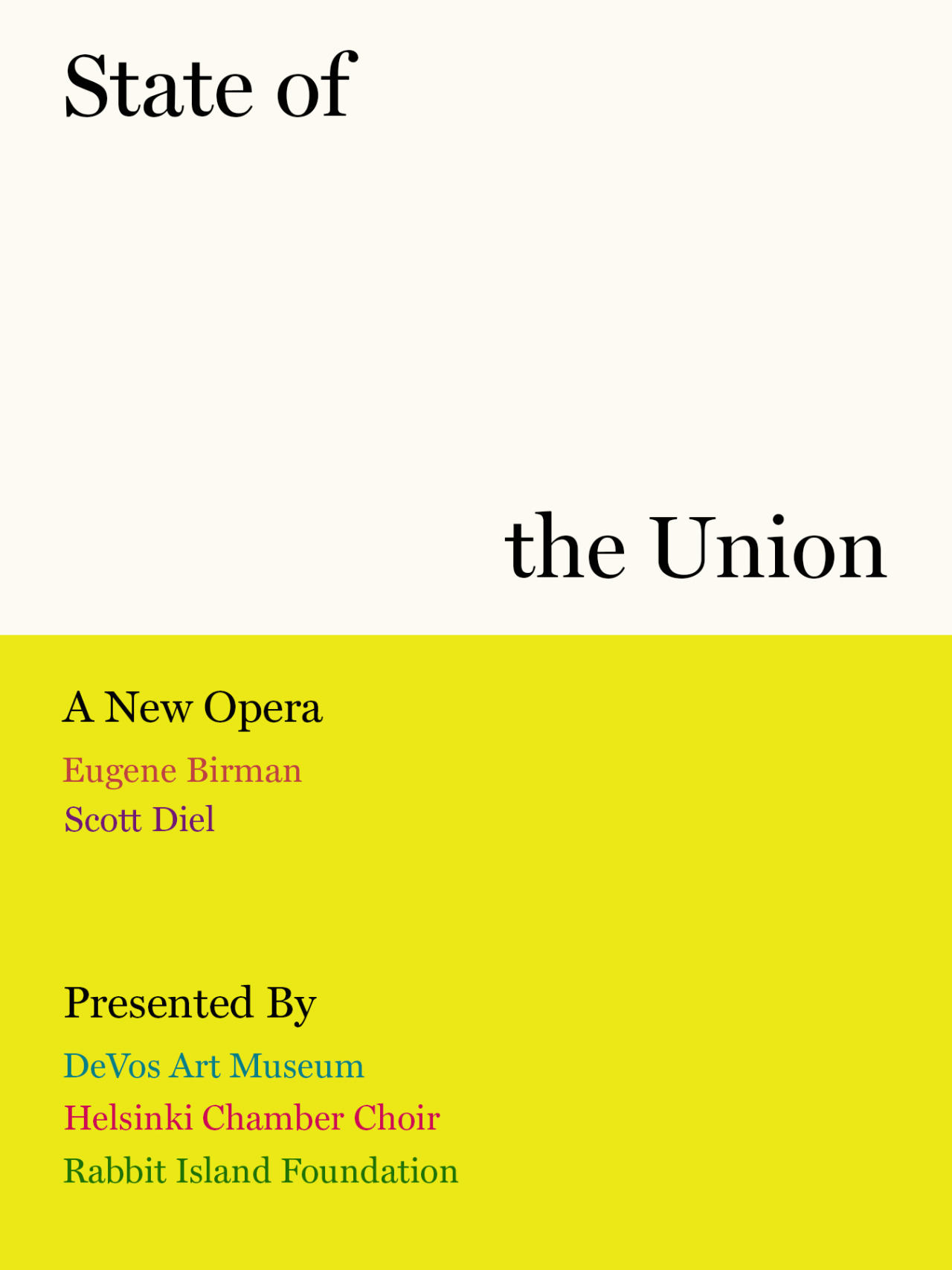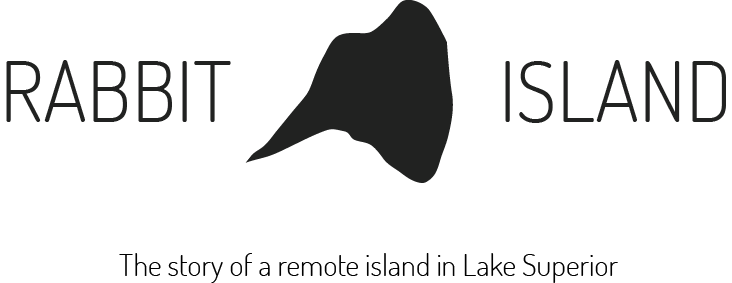
Introducing State of the Union
There’s really nothing wrong with the planet; it’s more about what’s wrong with us.
World Premiere: September 29th, 2016, Marquette, Michigan
Rabbit Island is proud to present a bold new opera addressing the pressing political and environmental issues of our time. The opera was conceived in 2015 while Juilliard-trained composer Eugene Birman and librettist Scott Diel spent sixteen days on Rabbit Island.
This fall, Birman and Diel will present their work, State of the Union (SOTU), a 40-minute operatic work for twelve voices, in Marquette, Michigan, on the campus of Northern Michigan University. The piece will be performed by the Helsinki Chamber Choir, the leading vocal group from Finland and one of the most notable contemporary choirs in all of Europe. Part opera seria, part satire, SOTU considers environmental crisis, economic inequality, and the general obliviousness of society’s confused march forward. The opera condemns no one and everyone, yet its finale doles out redemption to those open to it.
SOTU is four characters – the environment, the rich, the middle class, and the poor – meeting and interacting over seven movements. It reflects a belief that many of our problems stem from how we view and treat one another. As a society we too often equate wealth with wisdom, and poverty with personal shortcomings.
This work pushes forward the genre of classical music and also advances the medium to underscore a new subject: humanity’s relationship to its natural environment in the context of modern society.
According to Birman, “SOTU’s relationship to the very beginning of opera is quite strong, in that opera was invented as a genre for communicating revolutionary ideas. But political and conventional limitations on the form were nevertheless too limiting, so it was quickly subsumed into ‘music as entertainment’. SOTU is commentary on that role, for while the piece will be entertaining, I see its purpose as bringing opera back to what it was meant to be… as a Gesamtkunstwerk with a specific purpose, not just one that brings together art forms for the delight of audiences. I think that the genre needs this shake-up because it has, with each new addition, become more and more anachronistic and baroque—ultimately, irrelevant and silly.”
Rabbit Island is a laboratory for artists to consider the modern relationship between art and the environment, and this is what Birman and Diel have done. Historically this type of leap was not accessible to composers for simple reasons: precise environmental consciousness did not exist in centuries past. Therefore, in its stead, interpersonal dramas became the primary focus of the operatic medium.
For centuries Handel, Verdi, Puccini, Beethoven and Berlioz explored subjects of power, politics, tragedy, mythology, love, and death. Classical wisdom of the sixteenth to late twentieth centuries, after all, was based on texts written in a pre-scientific era, and had significant omissions. Today, however, as we transition away from a time when drama between people and states represented the sole pinnacle of moral concern, to an era where the relationship between society and nature has become the most pressing agenda, an artistic and cultural evolution is needed. SOTU represents an attempt to illustrate these ideas in the medium of new opera.
In this context does Puccini’s famous 1904 Madame Butterfly and its popular lesson of cultural and sexual imperialism still represent a “classic” idea that we should be concerned with? Of course it does—this theme, any many others, will not expire. However, in addition, should we not desire art that serves to clarify and celebrate new measures of our moral and environmental understanding? Climate change is new. The Anthropocene is new. COP 21 is new. Asian Carp are new. Superfund sites are new. Emissions laws are new. These are the kinds of discussions we strive to keep in mind and this is why we are excited about State of the Union; it attempts fresh thought that is grounded in moral tradition, expressed via art. We must, after all, always remember to take the old masters as meaningful guides, yet be wary of letting them intoxicate us to the point of failing to move ahead when necessary. We can’t wait for its September premiere and hope that you will join us!
SOTU has been brought to life thanks to generous support from the Rabbit Island Foundation, Northern Michigan University’s Northern Nights concert series, DeVos Art Museum, the Finlandia Foundation, the Finnish Cultural Foundation, and the U.P. Beaumier Heritage Center.
We are particularly excited to welcome the Helsinki Chamber Choir to the Upper Peninsula of Michigan where a large percentage of residents can trace their roots back to Finnish immigrants. In the U.P. we proudly celebrate Finnish language, culture, sauna, surnames and, of course, sisu.
